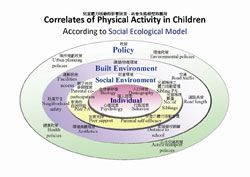Two leading scholars have been invited to deliver public lectures on Obesity organized by the Research Grants Council with the Hong Kong Science Museum on 6 April 2013 (Saturday). Details of the lectures are as follows:
| Topic | Speaker | Time |
|---|---|---|
| Fighting the Obesity Epidemic: What's on the Horizon in 2013? | Prof Karen Siu-ling Lam (Chair Professor, Department of Medicine, The University of Hong Kong) | 2:30 pm - 3:30 pm |
| Childhood Obesity and Social-physical Environment | Prof Stephen Heung-sang Wong (Professor, Department of Sports Science and Physical Education, The Chinese University of Hong Kong) | 3:30 pm - 4:30 pm |
Venue: Lecture Hall, Hong Kong Science
Museum (Location
Map)
Language: Cantonese
Free admission on a first-come, first-served
basis.
For enquires, please contact us at 2524
3987 or rgc@ugc.edu.hk.
First Session
Topic: Fighting the Obesity Epidemic: What-s on the Horizon in 2013?
Speakers: Professor Karen Siu-ling Lam
Time: 6 April 2013 (Saturday) 2:30pm - 3:30pm
Brief introduction:
|
Obesity has become a global health problem. According to the World Health Organization, one billion adults were overweight worldwide in 2002, with 300 million being obese, and these figures were expected to double within a decade. In Hong Kong, two-thirds of our adults would be considered as overweight or obese, by Asian criteria, according to findings of the Hong Kong Cardiovascular Risk Factor Prevalence Study (CRISP). Supported by funding from the RGC and Health & Health Services Research Fund, this 17 years prospective community-based study (1995-2012) has also shown that central obesity, defined as a weight circumference greater than 90 cm in men and 80 cm in women, is on the rise in Hong Kong. Over the years, we have followed up on the development of various cardiovascular risk factors in these 2900 subjects randomly recruited from among the adults in Hong Kong. Our findings clearly show that obesity, especially central obesity, predisposes to the development of diabetes, hypertension and the metabolic syndrome in our population, and confers increased mortality, through the development of cardiovascular diseases and cancers. Indeed, worldwide, obesity is now recognized as the second largest cause of cancers, after smoking. Although the identification of genes causing obesity may lead to novel strategies for the prevention and treatment of obesity itself, the major genes causing obesity in humans have remained elusive, despite active research involving large-scale genome-wide scans. On the other hand, the CRISP studies have shown that the use of serum biomarkers may help to identify individuals at higher risk of the complications of obesity so that they can be offered timely and intensive preventive measures. Until recently, following the withdrawal of sibutramine and rimonabant because of safety concerns, only one anti-obesity drug, orlistat, has been left to combat the rising obesity epidemic. Although the US Food and Drug Administration (FDA) has approved two new anti-obesity drugs in recent months, both drugs have potential side-effects and their impact on long-term cardiovascular morbidity and mortality risks remains unknown. Meanwhile, there has been an increasing use of different types of bariatric surgery, and endoscopic interventions, to reduce intake and absorption, in those with severe obesity. In the much larger population of subjects with mild to moderate obesity, however, lifestyle modifications remain the cornerstone of anti-obesity therapy, and should be promoted through the implementation of public health policies to minimize unhealthy dietary intake and physical inactivity, starting with our children, over 20% of them being overweight. Strategies and success cases, both overseas and locally, will be presented. |
 |
Second Session
Topic: Childhood Obesity and Social-physical
Environment
Speaker: Professor Stephen Heung-sang Wong
Time: 6 April 2013 (Saturday) 3:30pm - 4:30pm
Brief introduction:
|
Childhood obesity is associated with numerous physical and psychological consequences such as cardiovascular disease and low self-esteem. More alarmingly, many of these negative influences continue into adulthood. Over the past few decades, there has been compelling evidence that adequate physical activity (PA) and good dietary habits are two essential health-related behaviors for weight maintenance. Considerable efforts have been made in developing strategies to increase PA and promote healthy eating habits among children. However, findings from many intervention studies indicate that such strategies are either unsuccessful or unsustainable in a free-living condition. Recently the Social Ecological Model has been applied for assessing the relationship between PA and childhood obesity. Numerous studies suggest that childhood obesity or PA is related to a combination of individual characteristics, parent and peer influences, and home and neighborhood environmental factors. However, a majority of these studies have been conducted in countries with spacious environments such as the US, the UK and Australia. Very little is known about the determinants associated with obesity and PA among children in the Chinese community. Researchers from Hong Kong have recently examined the multidimensional or environmental correlates of PA for children. It has been reported that higher PA levels were positively and consistently associated with self-efficacy, parental PA levels and parental support for PA, and school physical activity-related policies. Certain aspects in the physical environment may also be related to the PA participation of children. The lecture will provide an overview of social-environmental research in children-s obesity and PA. In addition, the research findings presented will be related to the multidimensional correlates of PA for Chinese children in Hong Kong. |
 |